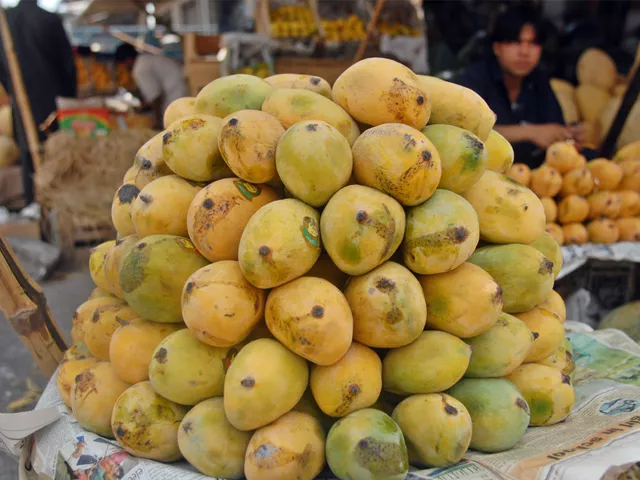Pakistan's export gloom sours prized mango season
Dwindling harvests, low demand and supply chains hit by coronavirus hamper industry
MULTAN:Dwindling harvests, drooping demand and export supply chains hit by the coronavirus are biting into Pakistan’s mango industry, with producers of the prized fruit battling to weather a disastrous season.
Across Pakistan’s “mango belt” in Punjab and Sindh provinces, farmers say long winters and changing rain patterns have slashed production by up to half this year - just as the virus shutdowns sparked border restrictions and spiralling export costs.
“There are multiple problems that mango farmers are facing,” said Rana Muhammad Azim, whose family has been producing the fruit in Punjab for generations.
“The situation is extremely worrisome for us. The mangoes are ready, but no exporter is willing to take the risk and place orders,” he said, adding that he was already suffering from a 40% decline in harvest.
Pakistan produced more than 1.5 million tons of mangoes in 2019 - and exported a record 115,000 tons worth $80 million - making it the sixth-largest exporter of the fruit in the world.
But Waheed Ahmed, head of a produce association in Pakistan, said exports have dropped around 40% compared to the same period last year, with just a few months left of the season.
With much of the world’s air traffic grounded by the coronavirus, exports of the best prime, ripe fruit by plane to the US and Europe have been particularly hard hit, but ground transport has also been badly affected.
Dozens of trucks piled high with the yellow fruit were stranded at the border with Iran last month, their precious cargo rotting in the searing 40-degree heat.
Even where trading has continued via sea to the key Middle East market - which accounts for 70% of exports - demand has plunged.
Since the virus took hold shoppers are making fewer outings to supermarkets and are wary of spending on luxury items, while Pakistani migrant workers who relish the fruit have returned home.
The domestic market brings far less revenue.
In one bright spot, harvests were at least spared the ravages of the worst locust plague in 25 years, which wiped out the entire vegetable and cotton harvests.
As flights resume and border restrictions are eased, growers hope to increase exports in the second half of the season to avoid a complete lost season.
“The situation has forced us to think of new solutions,” said producer Muhammad Ali Gardezi, who for the first time has taken his business online, delivering door-to-door in the age of social distancing.
Published in The Express Tribune, July 9th, 2020.
Like Business on Facebook, follow @TribuneBiz on Twitter to stay informed and join in the conversation.


COMMENTS
Comments are moderated and generally will be posted if they are on-topic and not abusive.
For more information, please see our Comments FAQ